Dan Higginson on Managing a Wedding Photography Business
Dan Higginson, a documentary wedding photographer, shares some wisdom in the hope of helping you on your journey of managing your photography business.
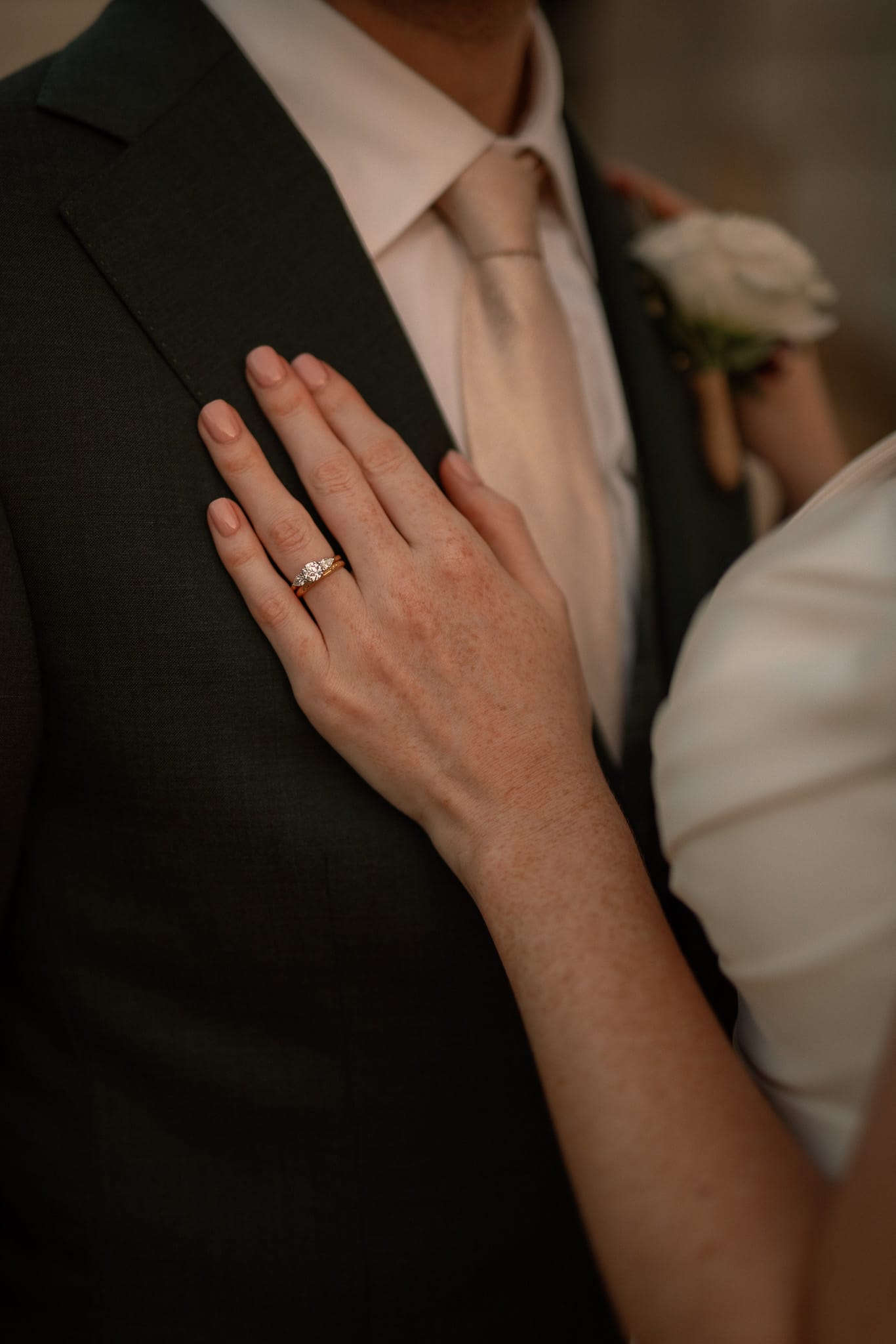
Introduction
Professional photography is a vast field, brimming with diverse niches such as product photography, portraits, events, photojournalism, and landscape; the list is almost endless. Identifying your niche early on in your career is crucial because, while there’s a ton of overlap between some of these, it’s hard to forge a successful career in more than one at a time.
My name is Dan Higginson. I’m a documentary wedding photographer based in Kent, the garden of England, just outside London. Over the last five years, I’ve learned a lot about how the idea of a photography career differs from reality. Now, I’d like to share a few of the nuggets of wisdom that I’ve gathered in the hope of helping you on your own journey of managing your photography business. Or at least give you some encouragement, knowing you’re already on the right path.
While I’ll focus my advice on wedding photography, much of it could be helpful in other industries. We’ll explore some of the tools and techniques you can use to help you manage your wedding photography business and provide quality service for your couples.
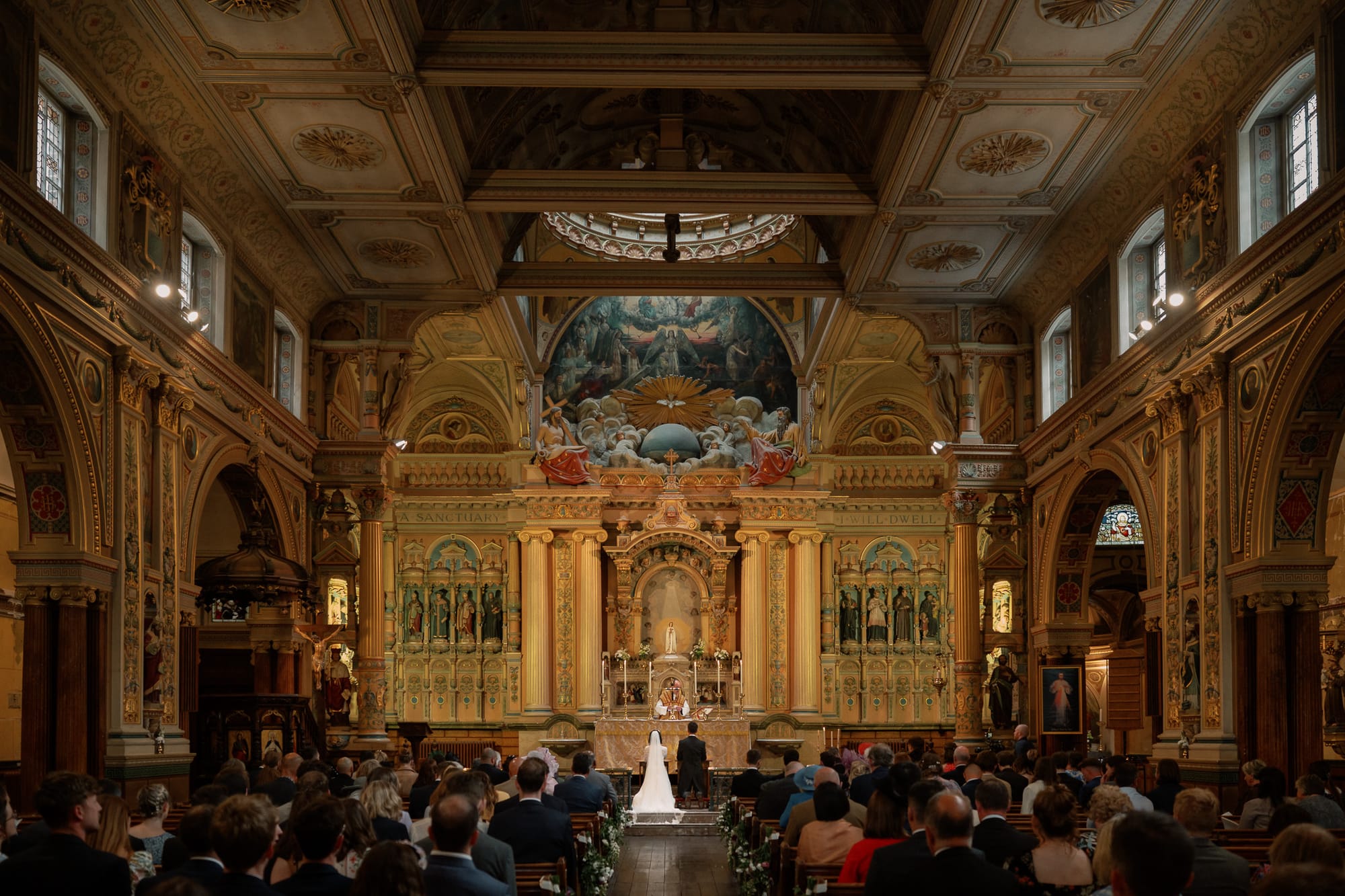
What Kind of Photographer Are You?
When someone looking for a photographer lands on your website or Instagram profile, they want to see what they’re looking for immediately. If they see wedding photography mixed with music and corporate headshots, they will more than likely continue their search. I learned this the hard way. I mistakenly thought people would appreciate the diversity. But, in truth, your couples don’t understand photography. They need to be confident you’re entirely focused on what they need. While I do more than just document weddings, I have separate websites and social media accounts for each aspect of my work. This might seem like more effort and cost, but in my humble opinion, it’s worth it to secure more bookings. That’s why it’s best to utilise a service like the Smiler Photographer Suite to manage your city photoshoots from booking to delivery, freeing up your time to work on your other income streams.
In fact, while you’re niching down, you can go a step further. Remember I introduced myself as a documentary wedding photographer? Well, that descriptor tells couples who might be interested in my services about how I’d approach their day. When you’re more specific about your style, your couples will have an easier time finding exactly what they want, and you’ll end up fielding fewer enquiries from couples who, no matter how brilliant you are, would never book you. You can’t please everyone. It’s nothing to worry about; it’s simply that someone else is a slightly better fit for their personal tastes.
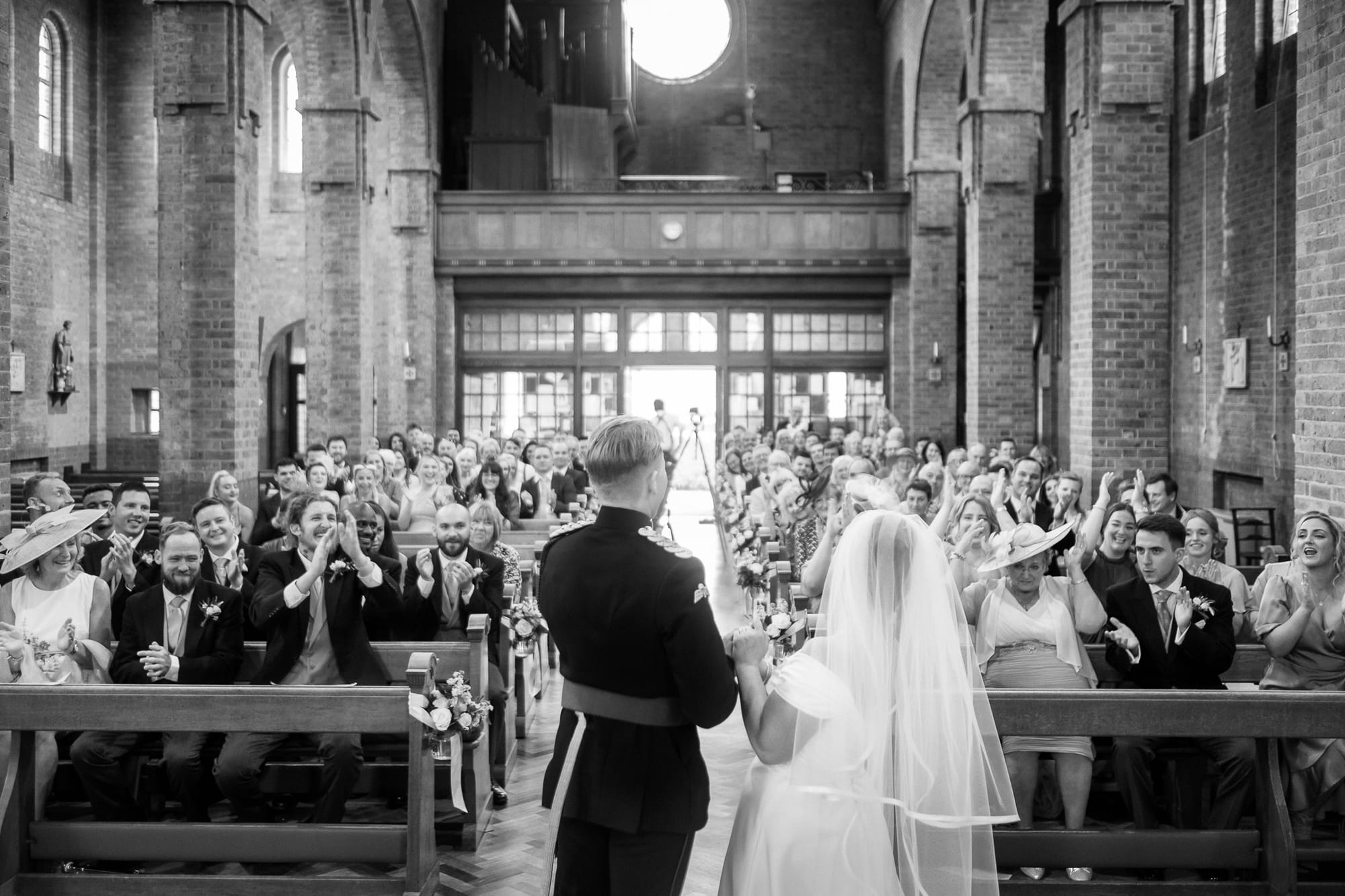
There’s a popular concept in the industry. Show what you want to shoot. If you’re a fine art wedding photographer who likes to dedicate time to making beautiful portraits, then lean into that when you’re selecting photos to put out into the wild because that is what you’ll get booked for. It’s your strength–it’s your voice; it makes you different to the next wedding photographer.
Technical Ability
There’s a lot of competition in wedding photography, especially since the pandemic when a lot of people changed careers. Because there are so many brilliant photographers competing for the same jobs being a good photographer isn’t enough anymore–you need to be exceptionally good.
While you might feel like an artist when you’re holding a camera, when we’re talking about business, you’re a director of a company. Let’s agree to be bold for a moment, put the crippling imposter syndrome aside. We’re getting some perspective, so this isn’t the time to be sensitive. Are you ready? How good is your photography? Be honest now. We all have our strengths and areas we’d like to develop, and understanding your place in the market is crucial to managing a successful business.

Wedding photographers need a relatively broad range of skills. One minute, we’re photojournalists; the next, we're portrait photographers; later, we may shoot architecture or products. While we don’t need to master all subjects, we do need to be able to make a decent photograph of literally anything, generally in sub-optimal conditions with very limited time.
Find the most successful wedding photographers in your area. Does your portfolio stand up against theirs? What are they doing that you’re not? What should you do better? Answering these questions as fully as possible will help you develop your photography and your business. It will guide you to being the best you can be and, in turn, greatly improve the quality of your service for your couples.
Time Management
It's no secret that being a team of one means you will have a lot of roles. You won’t just be the Photographer, but we’ll also be the marketing department, finance team, technical support, logistics, customer support, and admin.
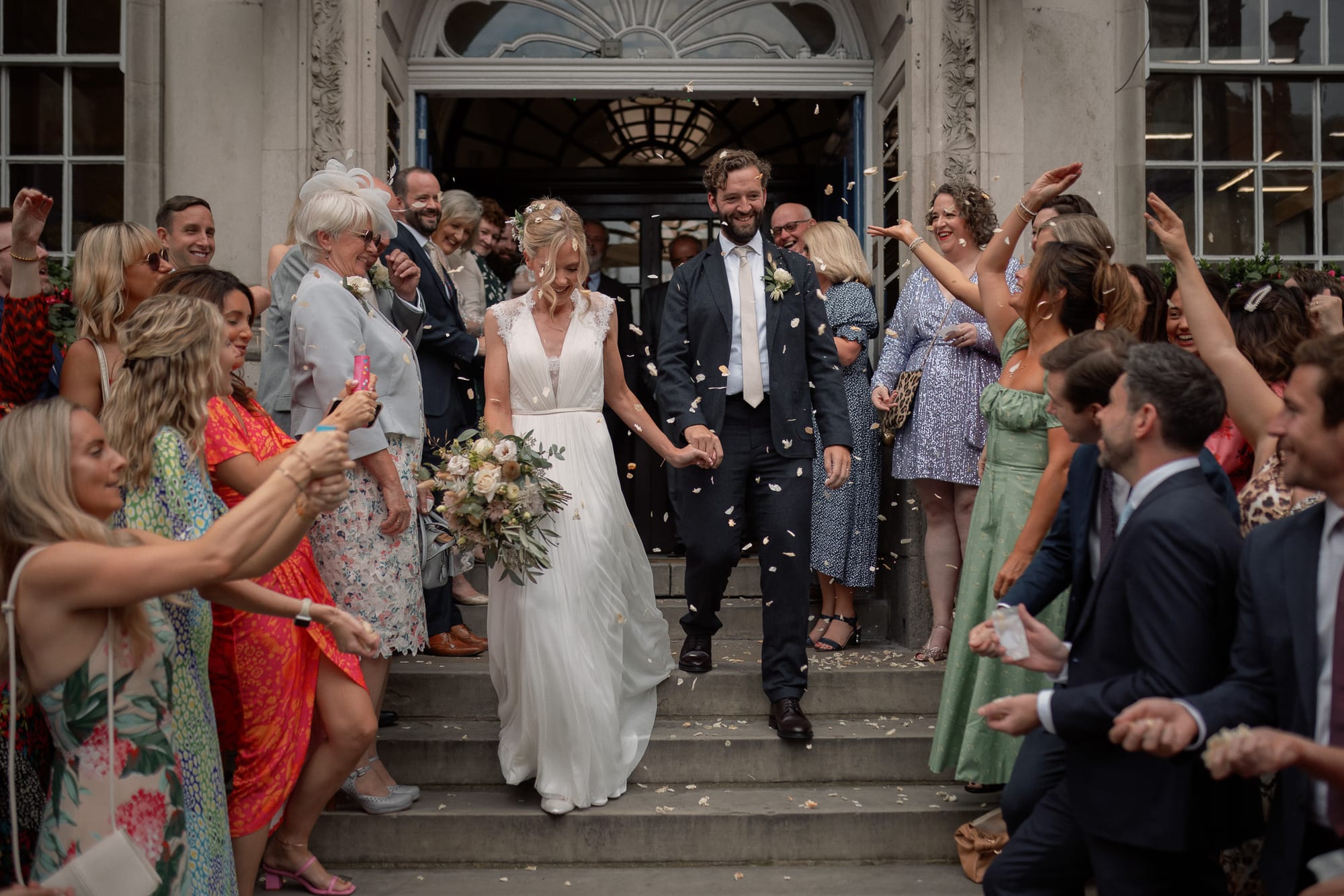
The more hours you work on each assignment, the less you're getting paid, so it makes sense to nail your workflow. As far as possible, try to systematise. I’ve found that using Client Relationship Management (CRM) software to manage your bookings from enquiry to gallery delivery is a huge time saver. Like a digital assistant, mine takes care of all my calendar, communications with my couples, contact forms, quotes, invoices and payments, contracts, questionnaires, and even links to my galleries so my couples can access everything from their personalised portal.
If you’re considering diversifying your wedding photography income with city photoshoots, the Smiler Photographer Suite is a great all-in-one service that will host your portfolio, generate leads, take care of payments, and deliver photos to your clients. My CRM saves me more time than any other tool and leaves me free to do the only thing that pays my bills, which is photography.
Like many creatives, I’m easily distracted and a little disorganised. If I’m not careful, I fill my time with busy work. You know, the tasks that consume a lot of your time but you don’t get paid for rarely lead to more paid work. This leaves less time for the jobs I need to do to earn money, affecting my work/life balance. The best way I’ve found to manage my time better is by keeping a to-do list and then literally allocating time in my calendar throughout the week to these tasks. Set your limits and stick to them. Don’t allow yourself to overrun or reschedule. Keep regular hours, treating this like an office job. You can’t be successful if you burn out. No responding to enquiries at midnight or post-processing while you eat dinner. That way, you’ll be able to take better care of yourself, freeing up time to be social with loved ones, stay healthy, and recharge.
Client Acquisition
This is something that took me a while to realise. You’re one person. How many weddings can you shoot in a year? There are hundreds of weddings a week happening all around you, but you can’t photograph them all. You’re limited, right? So, you’d be sensible to deliberately target your work at couples that fit your vibe, these are the couples most likely to book you. Answer this deceptively simple question for me, who is your ideal couple? Think deeply and write down everything about them. Where do they live? Where are they getting married? Do you know what they do for a living? Maybe they have pets, they’re passionate about live music, or they’re big-time foodies. What clothes do they like? Where do they like to go on date night? What brands do they like?
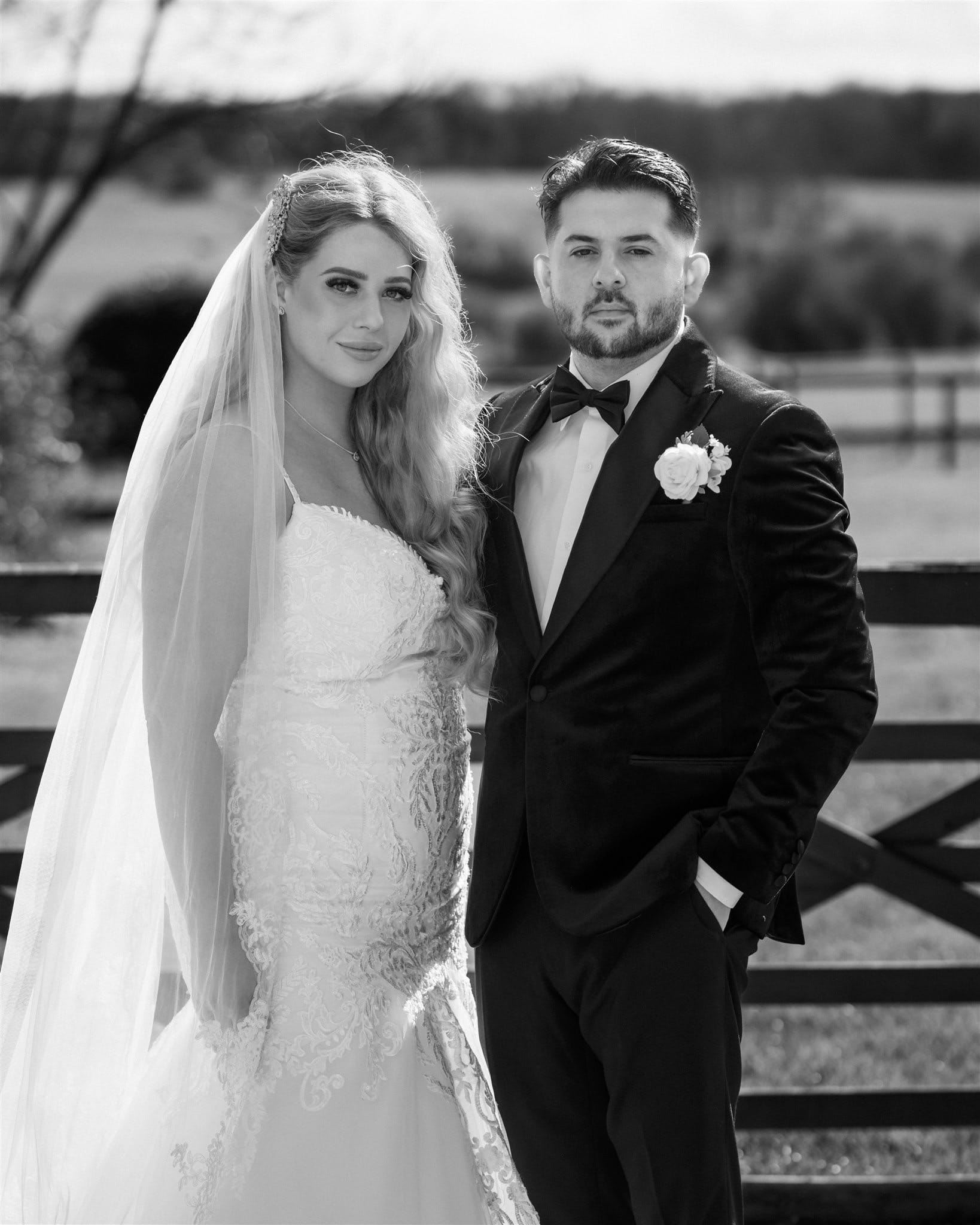
The more you know about your ideal couple, the easier it will be for you to get on their radar. They don’t know they need to meet you yet, so it’s up to you to do your market research and be in the right place for them with the right branding. If your couples are bright and colourful theme park aficionados, then your brand and photography need to appeal to them exclusively. The more you commit to being authentically yourself, the more successful you’ll be.
This brings me to two very important points. Firstly, pricing. Take the time to research your competition and understand your worth. I’m not saying you should join the race to the bottom by pricing lower than the other photographers in your area. But if you feel others with similar experience and style where you work are in a similar price range, being significantly more expensive will mean you won’t get booked. Equally, being too cheap will give couples that “too good to be true” vibe, again putting them off. If you're interested in reading about my thoughts on wedding photography pricing, feel free to look at my blog post on the topic.
Secondly, strike the right balance between photos and text. People want to know who you are and why you’re the person for the job. But they also have a very short attention span. Be clear, be bold, and be brief. Make everything bite-sized so you don’t overwhelm prospective leads before they’ve even spoken to you. Apparently, you have five to ten seconds to get their attention on your website and even less on social media.
Client Care
Remember what you love about being a wedding photographer. It’s a special occasion, so do anything you can do to make people feel special. Not just your couple, but all of the guests at the wedding. If you sell prints, everyone there could be a potential customer of yours once you’ve delivered their photos. That said, while couples want you to go above and beyond for them if they become demanding, you can spread yourself too thin.
Be clear from the start about what you do and how you do it. Managing expectations is the best way to avoid complaints or disappointment. If you can be the little oasis of calm on their wedding day, you’ll be the first to see potential spotfires. Don’t be afraid to make requests on the day if it will improve your couple's experience or the quality of their wedding photos. For example, if a venue manager is being difficult and tries to restrict access to a location the couple were excited to be photographed in, then tell them. Be professional and kind when you explain the problem and see if the couple can help remove the barrier. Even if the problem isn’t resolved, the couple won’t blame you.
Taking care of your couple doesn’t stop after you photograph their wedding. Keep them up to date with your progress and deliver their gallery in a timely manner. Answer their questions the way you would have at the start. You’ll find that all the brilliant work you’ve done until now will translate into more print sales. Particularly if you’ve made a good impression on their wedding guests.
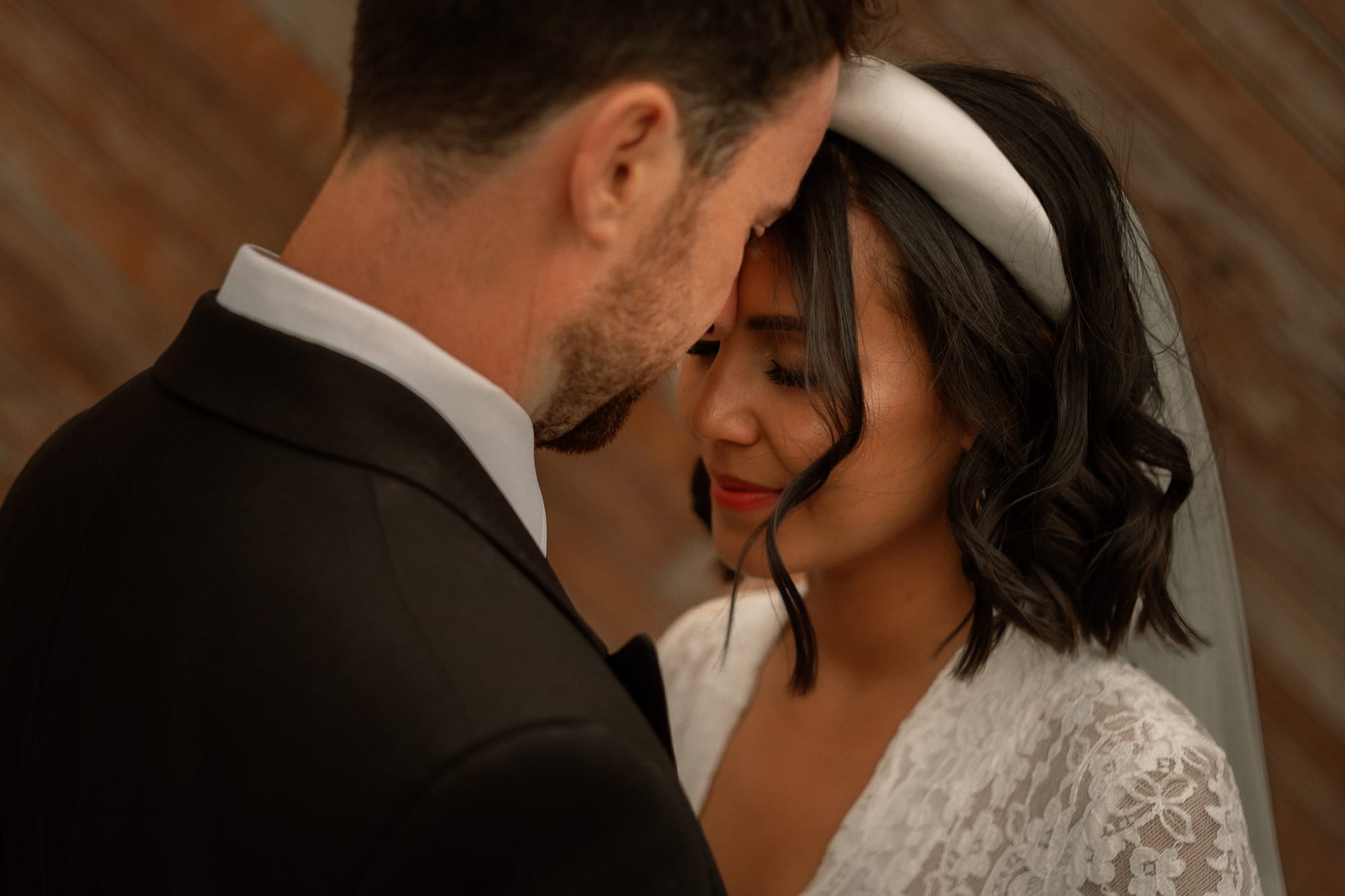
Gear
All modern professional cameras can deliver high-quality results. What you look for in a camera is as personal as your taste in music. But there are four things I would suggest you add to your list of non-negotiables.
Serviceability
What I mean by this is, will the manufacturer still support the gear when (not if) there is a problem?
Workflow
Do the camera operations make sense to you? You will need to learn this thing inside and out to problem-solve its inevitable tantrums at a moment’s notice.
Reliability
Your cameras and lenses are tools that need to be up to the job. In the summer months, your gear will see back-to-back 10-hour plus weddings in the blazing heat.
Redundancy
If something can go wrong, eventually, it will. You need at least two cameras (preferably three) and multiple lenses. There’s a saying in the military “Two is one and one is none”. Your couple won’t forgive you if they don’t have photos of the big moments, no matter your excuse. Ensure you have enough gear within arm’s reach at moments like the ceremony so that if something breaks, you can carry on without missing a beat. You won’t have time to run back to the car, so carrying a small bag of “just in case’s” is a very smart move!
Personally, I have a fifth non-negotiable. I would not trust a camera that doesn’t support mirrored raw back-ups. It’d be a deal breaker if a camera didn’t have two card slots or a card slot and internal memory. All professional digital cameras have this nowadays, so there’s no excuse not to use it.
Most wedding venues in the UK are dark, especially out of peak season. You’ll need lights at some point if you’re shooting a full day. Again, you need to be proficient in using them. The timeline won’t stop while you watch videos on YouTube to learn how to use your stuff.
Staying protected
While this isn’t the sexiest topic, it could mean the difference between your business surviving an ‘incident’ or losing a lot of money and needing to find a new job. Ensuring you have adequate contracts, insurance, and backups will protect you and your couples.
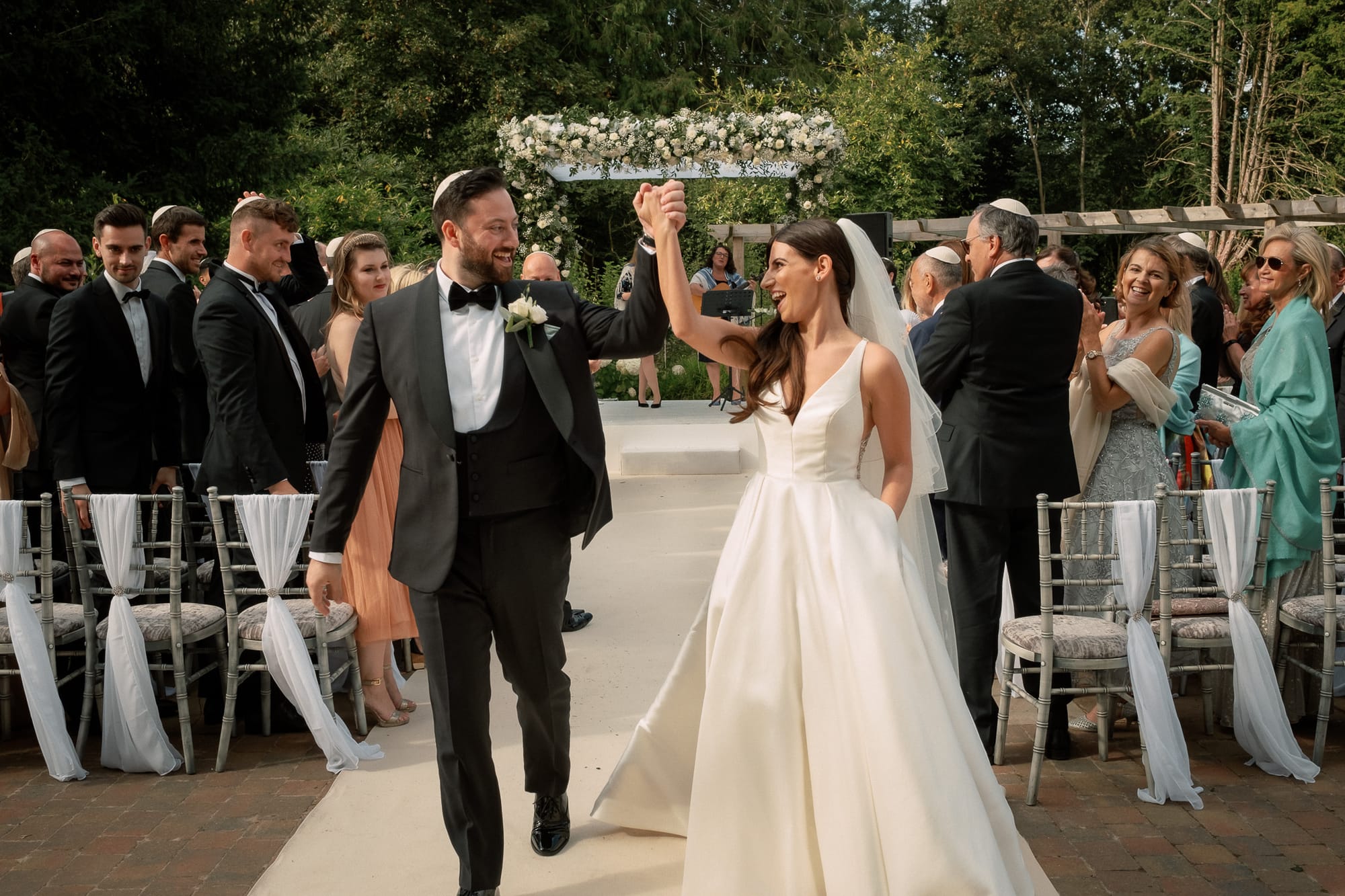
Insurance
Professional insurance isn’t just about ensuring your gear is covered; it's also about your business. Trust me, some of the property you’ll be working in and around is worth enough to kill your career if an accident happens. And if someone decides they want to litigate, the legal costs could be life-changing.
Contracts
Contracts must be in place to protect you and your couples. While it’s easy to overcomplicate them with legal jargon, at its core, your contract is the agreement of what your couples can expect from you and what you expect from them. So, try to keep it simple. They clarify who owns the copyright and what you can and can’t do with the photographs. And it gives each of you firm standing to push back if the agreement isn’t met. While you hope never to use your contract, you’d lose any case in court without it.
Backups
You should have backups for everything needed to do your job. Including photos and documents. Imagine you accidentally lose the photos from a wedding. Would you hate to have that conversation with a couple? Me too! Here’s how seriously I take my backups. By the time I get home, I have at least three copies of every digital photo I took. As I leave the venue, I keep one card from each camera in a pouch in my pocket and the other in the camera. I copy the card using a portable hard drive on the way home. Once home, I make another copy for my working drive that backs up to the cloud overnight. That’s five copies for those keeping count. Once I’ve delivered my gallery and the couple confirms they love their photos, I keep their RAW photos on a huge local drive backed up to the cloud, as well as a copy of the processed JPEGS.
So, if you are working without contracts, insurance, or backups then you’re taking huge risks and need to change things immediately!
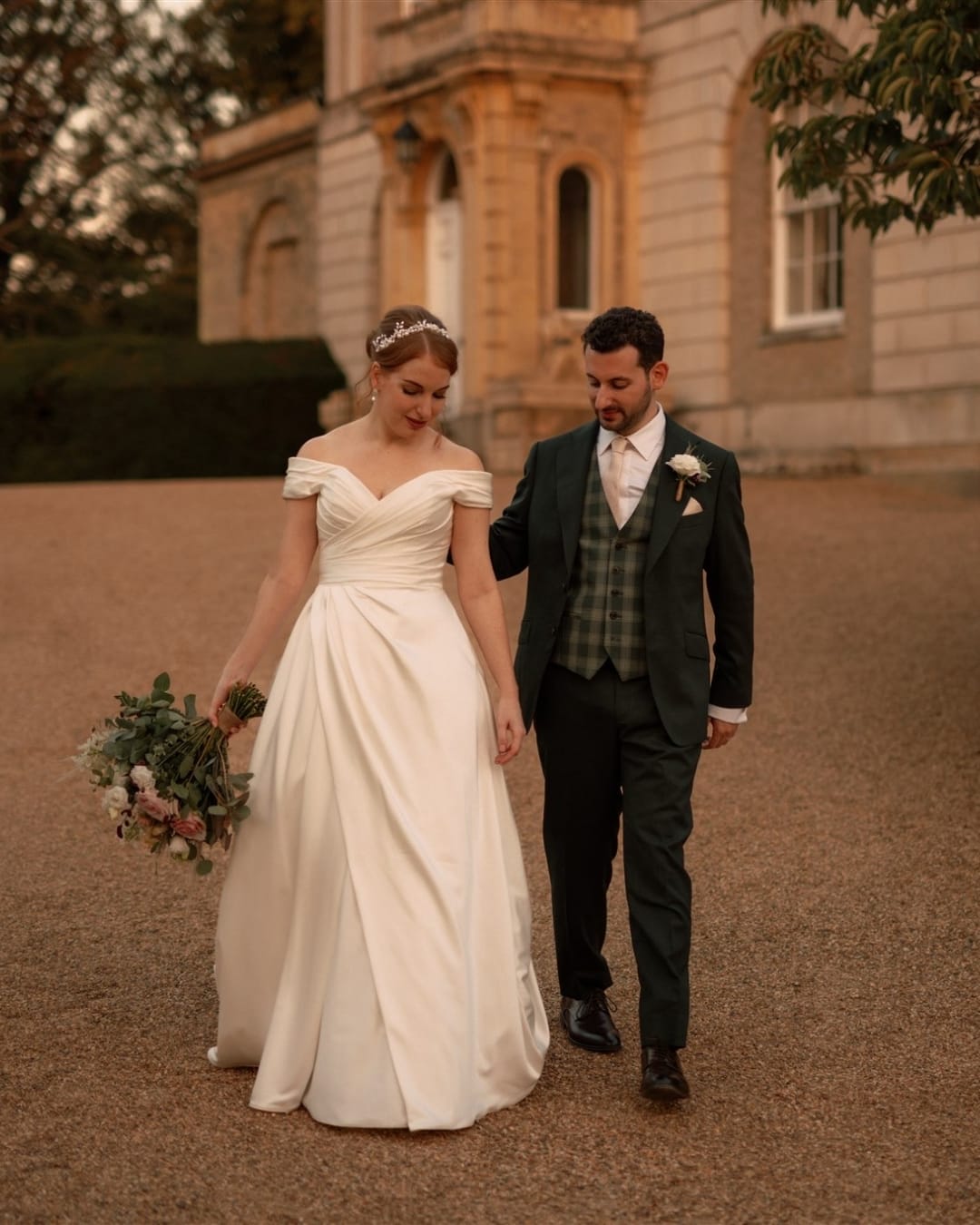
Conclusion
As a wedding photographer, I get to manage my own workday and be a part of making something that my couples will cherish for the rest of their lives. But running a small business is a constant test of how many plates you can keep spinning at any one time. It’s far harder than you appreciate on the way in, but because it’s so difficult, it’s even more rewarding than you can imagine while starting out. I honestly feel like wedding photography is my vocation. I’ve made so many amazing friends and had so many incredible experiences that I’d never have had in another industry. I’d love to hear what you found useful in managing your own business or even just to connect. Just search for Moment Photography or follow the link and say hello!
About the Author:
Dan Higginson is a wedding photographer based in Rochester, Kent, with a passion for documenting weddings in a heartfelt and authentic manner. Known for his cinematic style and relaxed approach, his approach is all about making couples feel comfortable and ensuring that their memories are preserved in a way that is both beautiful and authentic.

